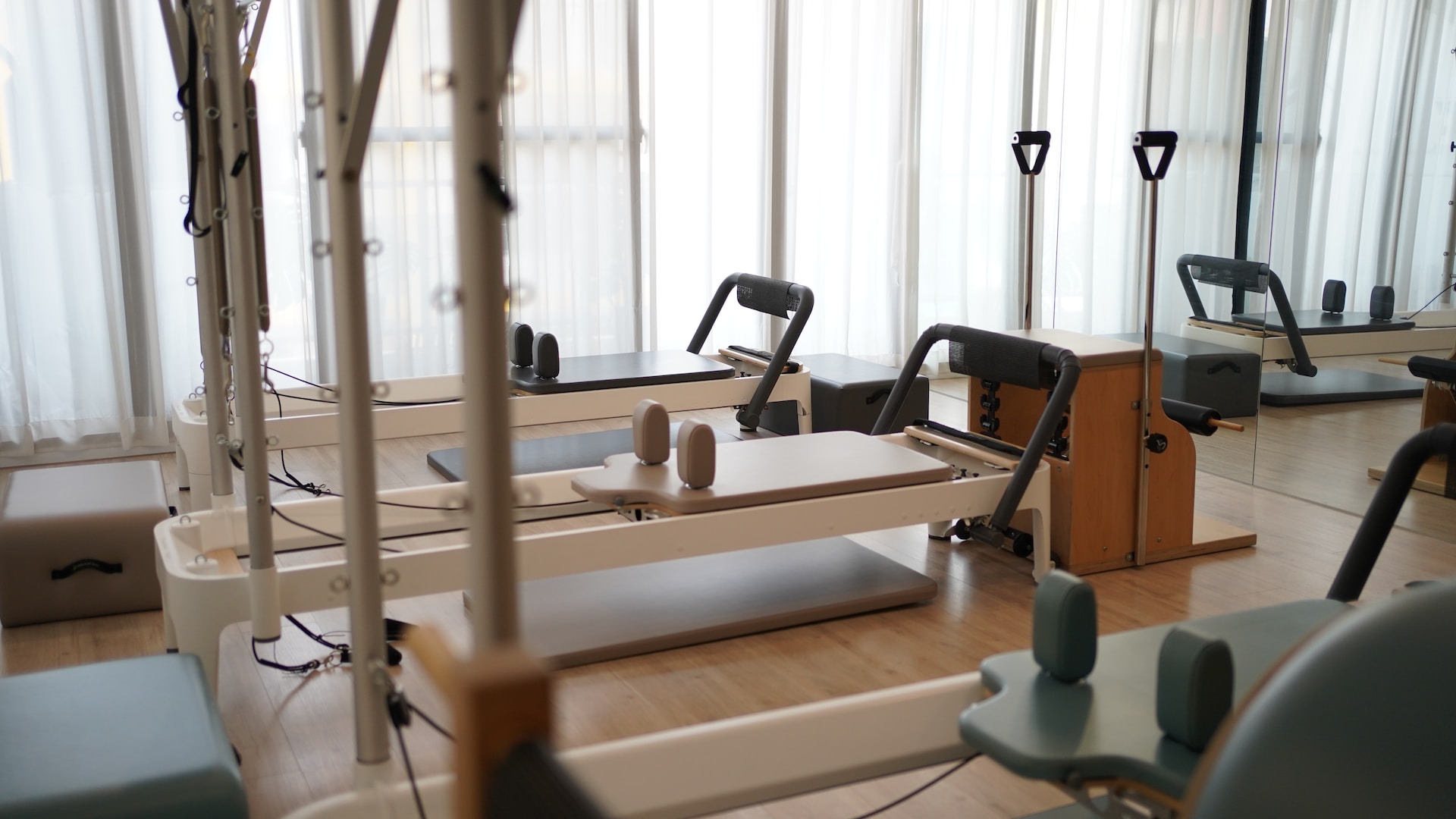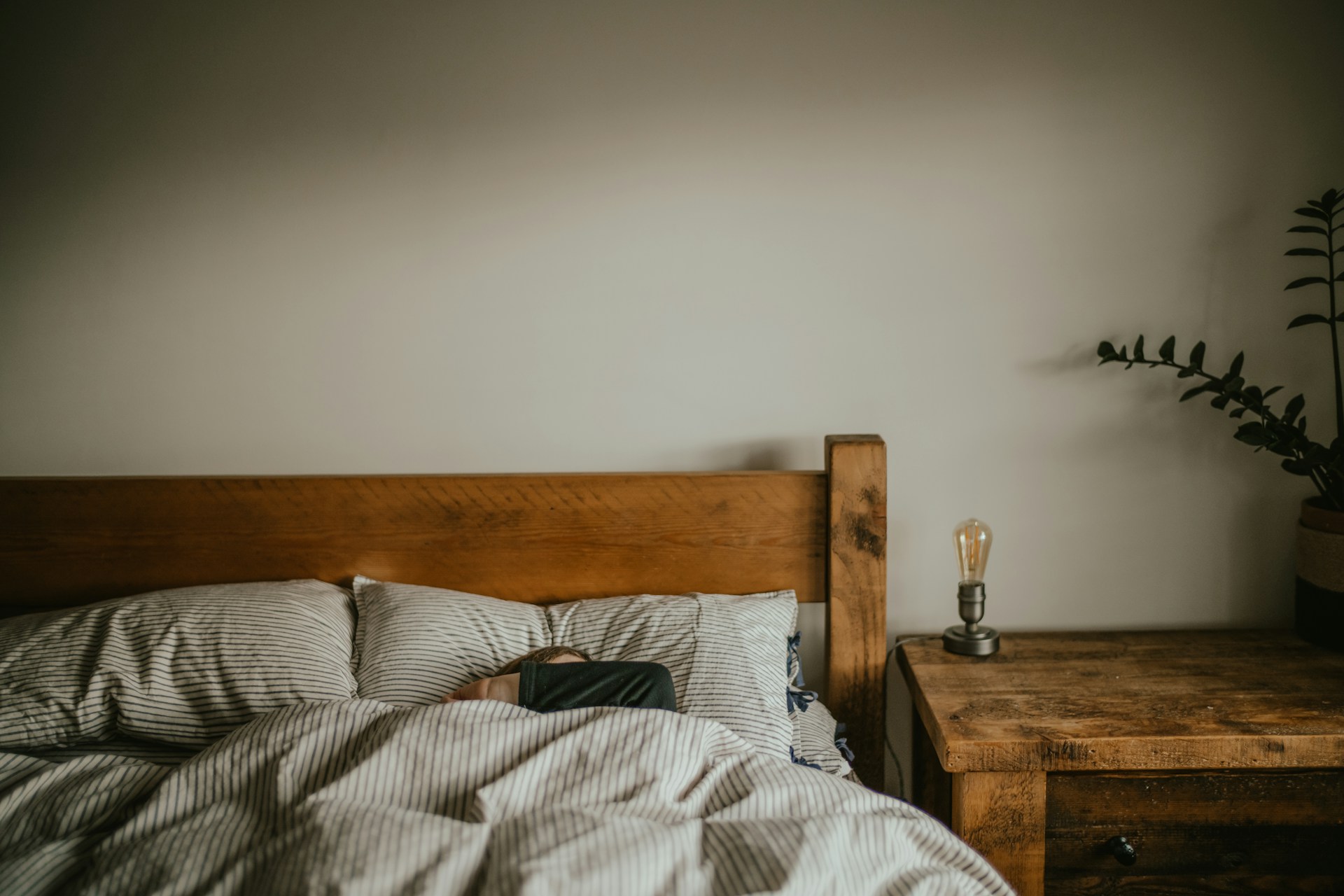Health
Pilates for Seniors: Building Core Strength

As we age, the importance of maintaining our physical fitness becomes increasingly apparent. But, let’s face it, the idea of pumping iron at the gym or running a marathon may seem a bit daunting, not to mention, unnecessary. Enter Pilates, a gentle yet effective form of exercise that focuses on building core strength, flexibility, and overall body awareness. It’s never too late to start, and for seniors, Pilates could be the golden ticket to staying fit, healthy, and vibrant.
Pilates, named after its creator Joseph Pilates, is a low-impact exercise designed to strengthen muscles, improve postural alignment, and enhance flexibility. It’s like the Clark Kent of the exercise world – mild-mannered on the outside but a superpower of strength and stability on the inside. And the best part? It’s suitable for everyone, regardless of age or fitness level.
Now, you might be thinking, “Sure, but why would I, as a senior, specifically benefit from Pilates?” Good question! Let’s dive in.
Core
First off, Pilates is all about the core. And no, we’re not just talking about getting a six-pack (though that would be a nice bonus). The core is the powerhouse of your body. It’s the central link that connects your upper and lower body, keeping you upright, balanced, and moving efficiently. As we age, our core muscles naturally weaken, which can lead to a host of issues like back pain, poor balance, and even increased risk of falls. Pilates exercises can help strengthen these essential muscles, improving your stability and overall body strength.
Joint health
Pilates is also a champion of joint health. Unlike high-impact exercises that can be hard on your joints, Pilates involves smooth, controlled movements that minimize the risk of injury. This form of exercise promotes flexibility and mobility, both of which are crucial for everyday tasks like bending to tie your shoes or reaching for that top shelf in the kitchen.
Physical benefits
But Pilates isn’t just about the physical benefits. It’s a mindful form of exercise that requires concentration and focus. This focus on breath and precise movements can have a positive impact on your mental wellness. It can help reduce stress, increase relaxation, and even improve your sleep.
Workouts
Now, let’s get practical. What does a typical Pilates workout for seniors look like? Well, it could involve a mix of mat exercises and equipment-based workouts. You might start with some gentle warm-up exercises to get your body moving, followed by a series of core-focused exercises like the ‘hundred’, ‘rolling like a ball’, or ‘leg circles’. Don’t worry if these names sound like secret codes. They’re just fun names for simple moves that your Pilates instructor will guide you through.
What’s great about Pilates is that it can be modified to suit your individual needs. If you’re a beginner or have certain physical limitations, your instructor can adjust the exercises accordingly. Remember, Pilates is not a competition. It’s all about listening to your body and moving at your own pace.
And just to sweeten the deal, Pilates can be a social activity too. Joining a Pilates class is a great way to meet like-minded individuals who are also on their fitness journey. Who knows, you might even find your new best friend!
So, if you’re a senior looking to stay fit, healthy, and positive, why not give Pilates a try? It’s a fantastic way to build core strength, improve flexibility, and enhance your mental wellness. Plus, it’s just plain fun! Remember, age is just a number. It’s never too late to start your fitness journey and feel great in your golden years.
So, grab your mat and let’s get those bodies moving. Because in Pilates, and in life, it’s all about the balance. It’s about finding the strength within you to rise, shine, and seize the day, every day. After all, isn’t that what being fit with age is all about?

Health
Unlock Restful Nights: Discover the Best Natural Sleep Aids

Quality sleep is crucial for maintaining overall health and wellness. It supports essential functions such as learning, memory, and decision-making. However, some individuals struggle to achieve restful sleep, which can increase the risk of health issues like heart disease, diabetes, and obesity. While good sleep habits are foundational, certain natural supplements may also aid in achieving better sleep.
Melatonin
Melatonin is a hormone naturally produced by the body, signaling the brain that it’s time to sleep. Melatonin supplements, often taken in doses of 3-10 mg, can enhance sleep quality, particularly for those experiencing jet lag or working night shifts. It has been noted that “melatonin supplements appear to be safe for adults when used for short periods,” though caution is advised for pregnant or nursing individuals due to limited research on long-term effects.
Valerian root
Valerian root is another herbal remedy that may enhance sleep quality and alleviate symptoms of sleep disorders. Commonly consumed in doses of 300-600 mg, valerian root is particularly popular in the United States and Europe. While some studies highlight its benefits, such as reduced sleep latency, others find its effects to be minimal. Despite this, “short-term intake of valerian root appears to be safe for adults, with minor, infrequent side effects.”
Magnesium
Magnesium plays a vital role in numerous bodily functions, including brain and heart health. It has a calming effect, potentially improving sleep quality. Studies suggest that magnesium supplements, typically in doses of 225-729 mg, can reduce the time needed to fall asleep. Magnesium is also known to increase levels of gamma aminobutyric acid (GABA), a calming brain messenger, thereby supporting relaxation.
Lavender
Lavender, widely recognized for its aromatic properties, may also promote better sleep. Aromatherapy using lavender oil has shown promise in improving sleep quality and reducing anxiety. However, it is essential to note that “oral intake of lavender has been linked to nausea, belching, and diarrhea in some cases,” so lavender should primarily be used for aromatherapy.
Passionflower
Passionflower, or Passiflora incarnata, is another herbal option that may slightly improve sleep quality. Its effectiveness can vary depending on the form consumed, with teas and extracts showing more promise than supplements. Although more research is needed, passionflower is generally considered safe for adults.
Glycine
Glycine, an amino acid, might help individuals fall asleep faster and enhance overall sleep quality. Consuming about 3 grams before bedtime has been associated with improved sleep metrics and reduced fatigue. Glycine is thought to work by lowering body temperature at bedtime, signaling the body that it’s time to sleep.
Cannabidiol (CBD)
Cannabidiol (CBD) is derived from hemp and has been explored for its potential to improve sleep and reduce anxiety. While some studies suggest it may help alleviate insomnia symptoms, more high-quality research is needed. It’s important to note that CBD legality varies by location, and it is not recommended for pregnant or breastfeeding individuals.
Other potential sleep aids include tryptophan, ginkgo biloba, and L-theanine. However, these require further scientific investigation to confirm their effectiveness. Kava, while linked to sleep benefits, should be used cautiously due to potential liver damage concerns.
Over-the-counter (OTC) sleep aids like diphenhydramine and doxylamine succinate are available, but they are not primarily intended for sleep and may pose risks, especially for older adults. Long-term use can lead to tolerance and dependence, and they may increase dementia risk. It is advisable to use these sparingly and consult a healthcare professional if sleep issues persist beyond two weeks.
Natural sleep aids can offer temporary relief for sleep disturbances. However, they should not replace healthy sleep practices and are best used as short-term solutions. If sleep problems continue, consulting a healthcare professional is crucial to address any underlying health concerns.
Let us know what you think, please share your thoughts in the comments below.
Health
Breathe Easy: Top Tips for Maintaining Healthy Lungs

As we age, maintaining the health of our lungs becomes increasingly important. Just like other parts of our body, such as the heart and joints, our lungs also age over time. This natural aging process can lead to decreased flexibility and strength, making breathing more challenging.
Despite this, many people overlook the importance of lung health when considering their overall well-being. Chronic lower respiratory diseases, including chronic obstructive pulmonary disease (COPD) and emphysema, rank as the sixth leading cause of death in the United States, according to the Centers for Disease Control and Prevention (CDC).
To help keep your lungs healthy throughout your senior years, consider adopting these five habits:
1. **Quit Smoking**: Smoking is a major contributor to lung diseases, including COPD, idiopathic pulmonary fibrosis, and asthma. It is also responsible for about 90% of all lung cancer deaths in both men and women. Smoking introduces harmful chemicals like nicotine, carbon monoxide, and tar into your lungs, causing damage by increasing mucus and irritating tissues. The good news is that quitting smoking can significantly improve lung health. “Within 12 hours of quitting, the carbon monoxide level in your blood drops to typical levels,” states the American Lung Association (ALA). Over time, lung function improves, and the risk of coronary heart disease decreases.
2. **Stay Active**: Regular physical activity is crucial for maintaining lung health. Exercise helps improve lung capacity and efficiency, allowing your lungs to function optimally. Activities like walking, swimming, or cycling can enhance your breathing and overall respiratory health.
3. **Avoid Air Pollutants**: Limiting exposure to environmental pollutants can protect your lungs. This includes avoiding secondhand smoke, dust, and strong chemical odors. Ensuring proper ventilation in your home and workplace can also help reduce exposure to harmful substances.
4. **Practice Breathing Exercises**: Engaging in breathing exercises can strengthen your lungs and improve respiratory function. Techniques such as diaphragmatic breathing and pursed-lip breathing can enhance lung capacity and efficiency.
5. **Regular Health Check-ups**: Routine medical check-ups can help monitor lung health and catch any issues early. Discuss any breathing difficulties with your healthcare provider, who may recommend screenings or preventive measures to maintain lung function.
Taking proactive steps to care for your lungs can lead to better respiratory health and overall well-being. By quitting smoking, staying active, avoiding pollutants, practicing breathing exercises, and keeping up with regular health check-ups, you can help ensure your lungs remain healthy and strong as you age.
Let us know what you think, please share your thoughts in the comments below.
Health
Spotting the Early Signs of Type 2 Diabetes: Your Guide to Prevention and Wellness

Understanding the early signs and taking proactive steps can be crucial in managing health conditions like prediabetes. As of 2021, nearly 98 million U.S. adults had prediabetes, a condition that often precedes type 2 diabetes. Fortunately, being diagnosed with prediabetes doesn’t mean you’re destined to develop diabetes. By making certain lifestyle changes, you can steer away from this path and improve your health.
Stay Active with Regular Exercise
Engaging in physical activity can significantly impact your blood sugar levels. Experts recommend at least 150 minutes of moderate-intensity exercise per week. This can include activities like brisk walking, cycling, or swimming. Taking walks after meals and snacks is a simple yet effective way to keep your blood sugar in check.
Focus on Balanced Nutrition
Eating a balanced diet is essential in managing prediabetes. Meals should include lean proteins, healthy fats, and complex carbohydrates while limiting saturated fats. Dr. Akhil Shenoy notes that diets high in red or processed meats and sugars contribute to prediabetes and diabetes.
Monitor Your Weight
Maintaining a healthy weight is crucial. If you’re overweight or obese, aim to create a calorie deficit to lose at least 5% of your body weight. This reduction can have a significant impact on your blood sugar levels and overall health.
Consult with Healthcare Professionals
Regular check-ups with your doctor can help monitor your condition. If lifestyle changes aren’t enough to lower blood sugar levels, medications may be prescribed. “If, despite these measures, blood sugar levels remain elevated, medications may be prescribed to further reduce the risk of developing type 2 diabetes,” advises Dr. Shenoy.
Seek Guidance from a Dietitian
A registered dietitian can provide personalized advice to support healthy blood sugar levels. Marjorie Nolan Cohn emphasizes the importance of dietary changes, stating, “At this stage, lifestyle and dietary changes are shown to be most effective for the majority of individuals with prediabetes.”
Mind Your Meal Timing
Skipping meals can lead to imbalanced blood sugar and insulin levels, particularly if you have multiple risk factors. Cohn warns, “Even skipping a meal contributes to the development of prediabetes.”
Understand Your Risk Factors
Recognizing the factors that increase your risk of prediabetes is essential. These include a family history of type 2 diabetes, a sedentary lifestyle, smoking, and poor sleep. Certain ethnicities, such as Asian, Hispanic, and Black American adults, are also more susceptible.
Taking control of your health by addressing these aspects can make a significant difference in reversing prediabetes. While the diagnosis may seem daunting, it’s also a wake-up call to prioritize your well-being. With the right steps, you can lower your risk of developing type 2 diabetes and embrace a healthier lifestyle.
Let us know what you think, please share your thoughts in the comments below.
-

 Health6 months ago
Health6 months ago17-Second Neuropathy Solution
-

 Nutrition10 months ago
Nutrition10 months agoThe Aging Secret of Vitamin D Unveiled
-

 Health1 year ago
Health1 year agoPreventing Falls and Injuries for Seniors
-

 Health5 months ago
Health5 months agoOncologist Reveals Top 5 Cancer Prevention Tips You Shouldn’t Ignore
-

 Nutrition1 year ago
Nutrition1 year ago5 AMAZING Dinner Recipes That Are Also HEALTHY
-

 Lifestyle6 months ago
Lifestyle6 months agoSleep Soundly with These 11 Expert-Approved Bedtime Routines
-

 Health11 months ago
Health11 months agoDownsizing Tips: Simplifying Your Lifestyle
-

 Lifestyle3 months ago
Lifestyle3 months agoMorning Habits That Could Add Years to Your Life